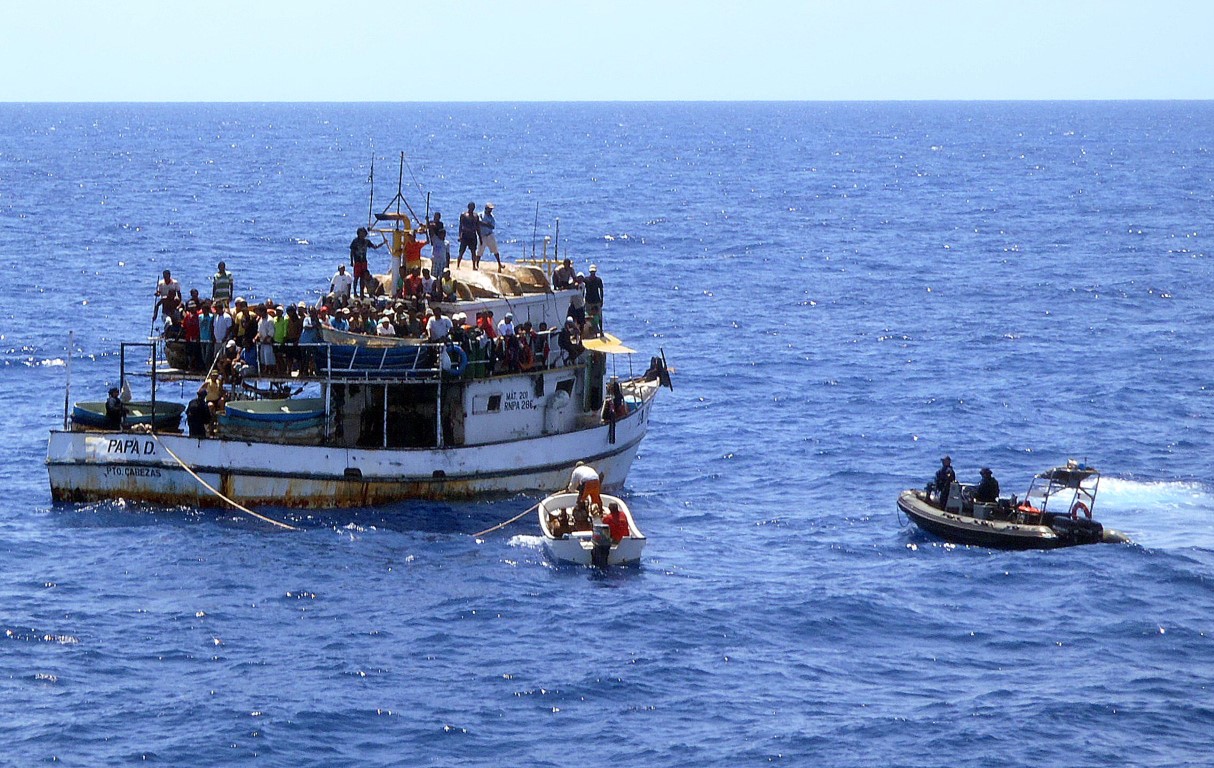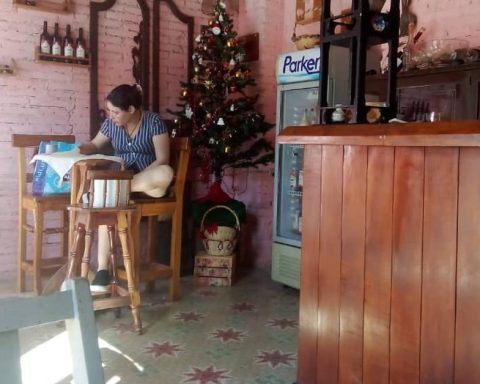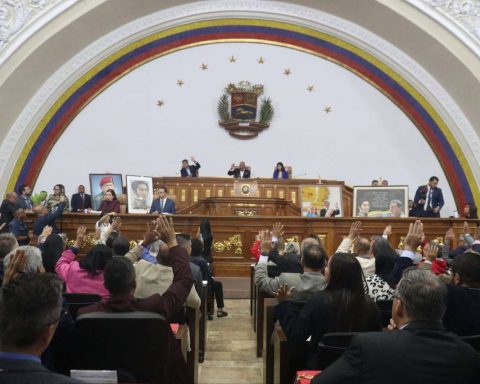The International Court of Justice (ICJ), the main judicial body of the United Nations, considered valid on Thursday, April 21, Nicaragua’s complaints about the violation by Colombia of its “sovereignty and jurisdiction” with its fishing permit for Colombian vessels. and its “interference” with Nicaraguan marine scientific research tasks in Managua waters.
The failed, read from the seat of the court in The Hague, was considered by the international lawyer Paul Reichler, former legal adviser of Nicaragua before the ICJ, as “another historic triumph of Nicaragua before the Court.”
“The Court confirmed the validity of its November 2012 judgment in favor of Nicaragua, and strengthened it. Second, the Court declared that Colombia’s claims to exercise its sovereignty and jurisdiction in Nicaragua’s Exclusive Economic Zone (EEZ) under the 2012 ruling violated Nicaragua’s rights, and Colombia’s legal obligations under the 2012 ruling. and international law”Reichler explained in an email to CONFIDENTIAL.
“Third, I continue, it declared that the so-called ‘Integrated Contiguous Zone’ declared by Colombia violates international law and is null and void. Fourth, it rejected Colombia’s claim that its nationals, inhabitants of the island of San Andrés, have fishing rights in Nicaraguan waters. they don’t have them”.
Reichler served Nicaragua in the ICJ for more than twenty years until his resignation last March 27in which he said that his “moral conscience” He demanded that he cut ties, while he questioned Daniel Ortega about destroying democracy in the construction of the country and establishing a new dictatorship.
One of two claims
LThe sentence of this Thursday, April 21 corresponds to one of two claims made by Nicaragua in 2013 that considers that the South American country violated its rights and maritime spaces, established by the ICJ itself in a 2012 sentence that Colombia refuses to abide by.
In its final and binding ruling, —of nine of 15 judges—, the UN court ruled on what it has considered a violation of Nicaragua’s “sovereign rights and jurisdiction” in its own Exclusive Economic Zone, and has demanded that Colombia “immediately cease its conduct” in that area.
The ICJ saw this violation in the authorization by Bogotá of fishing activities by Colombian vessels in Nicaraguan waters, and in its “interference with marine and fishing scientific research activities of vessels with a Nicaraguan flag or license and with the operations of naval vessels” in Managua waters.
In addition, it considered that the Colombian presidential decree of 2013 that established an “integral contiguous zone” from the mainland to the archipelago, in which the delimitation established by the ICJ in a previous ruling of 2012 (reaffirmed today by the court) is omitted, “does not conform to customary international law.”
“little scold”
In an assessment by Bogotá, Carlos Gustavo Arrieta, a Colombian agent before the ICJ, interpreted that the ruling contained “a small scolding for some operations of the (Colombian) Navy in some area”, but that the court “considered that they were not major infractions of international law and did not attribute consequences to them” for Bogotá.
“We have achieved what is essential for Colombia, which was to maintain freedom of navigation in the area and the presence of the Navy, maintain the integrity of the archipelago, and recognize the Raizal community so that it could fish in the area. We left very happy, ”he assured.
However, Reichler maintained that the declarations of Bogotá correspond to a “political effort to paint absolute defeat as victory. They won’t fool anyone”.
Another expert in Nicaraguan international law, consulted by CONFIDENTIAL On condition of anonymity, he explained that, of eight operative points, the ICJ ruled six in favor of Nicaragua, one was against and in the last one any other applicable claim of both parties was rejected.
“Colombia’s allegation that the ruling is only applicable through the signing of a treaty was implicitly invalidated, from the moment it mandates that presidential decrees 1946 of September 9, 2013 and 1119 of June 17, 2014, be placed in accordance with customary international law and its 2012 ruling. Those decrees declared the `contiguous integral zone` and Colombia must decide by what means they should adapt to what is dictated by the ICJ”added the specialist.
The Court asked Bogotá and Managua to seek bilateral agreements on the situation of the Raizal community, so that it can access and exploit its traditional fishing banks in Nicaraguan waters, something that Arrieta considered “political decisions” and “of the Governments”, and He promised that Bogotá will analyze the sentence and “proceed accordingly.”
Reichler explained, in this sense, that “The best resolution for both States would be a bilateral agreement on the maritime border between the two countries, adopting the border set by the Court in its November 2012 ruling, and guaranteeing artisanal fishing rights for the Colombian inhabitants of San Andrés. , and that would oblige both States to preserve and protect the environment of the sea and the shelf (bottom of the sea)”.
Colombian interpretation
However, on the point where the Court requires Colombia to “immediately cease its conduct”, Arrieta interprets it differently. “It does not order us to cease our presence in Nicaraguan waters, that is not true, what they said is that we could not carry out environmental control operations because they were powers of Nicaragua, but they never ordered us not to be present or to leave the area. never, nowhere.”
The ruling, added the Colombian agent, maintains “the possibility that the Colombian Navy will be there and carry out operations to fight organized crime in the area.”
This ruling has its origins in an ICJ ruling issued in 2012, by which Colombia maintained sovereignty over the archipelago of San Andrés, Providencia and Santa Catalina, of which the keys of Roncador, Serrana, Serranilla, Bajonuevo, Alburquerque are also part. , Key East-Southeast and Quitasueño.
It also conserved twelve nautical miles of the water that surrounds these territories, but lost almost 75,000 square kilometers of economic zone sea to Nicaragua.
Nicaragua then denounced before the ICJ that Colombia had violated international law by not applying that sentence because its Navy carries out operations in Caribbean waters that do not correspond to it and Bogotá issued the decree that established an “integral contiguous zone.”
In response, Colombia countersued Nicaragua before the ICJ alleging that that country “has violated the artisanal fishing rights of the inhabitants of the archipelago, in particular the Raizal community,” since their traditional fishing banks were outside the stipulated 12 nautical miles. in the previous ruling.
In addition, it also argued that Nicaragua issued that presidential decree that it considered “contrary to international law” and that it is related to the points and lines from which it measures its maritime spaces in the Caribbean, seeking to “unilaterally allocate marine areas to the detriment from Colombia”.
For his part, the Nicaraguan international expert warned that this Nicaraguan decree “must comply with the provisions of customary international law”.
Other lawsuit pending
In a article published on April 20 last In the opinion section of CONFIDENCIAL, the Costa Rican international law expert, Nicolas Boeglin, expected a ruling that would allow both States to declare themselves the winner in order to give room for dissent.
Boeglin highlighted when analyzing the case the argumentative capacity of the Nicaraguan team, made up of 11 members compared to 33 from Colombia. “ANDhe impressive number of the Colombian delegation seems to respond more to a communication operation than to members whose contributions are really significant and essential to consolidate Colombia’s claims in the Caribbean Sea”, he argued.
According to Boeglin, another lawsuit is still pending, also in the field of legal delimitation, also in relation to the Caribbean Sea, where “the delimitation of the continental shelf beyond 200 nautical miles from the coast of Nicaragua”.
Reichler said in this case that the last stage of the oral hearings is pending and so far the Court has not set a date.

















